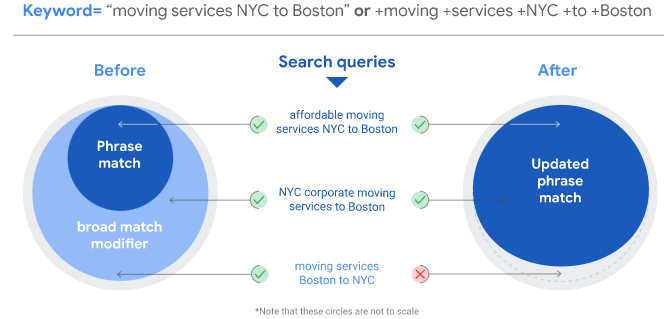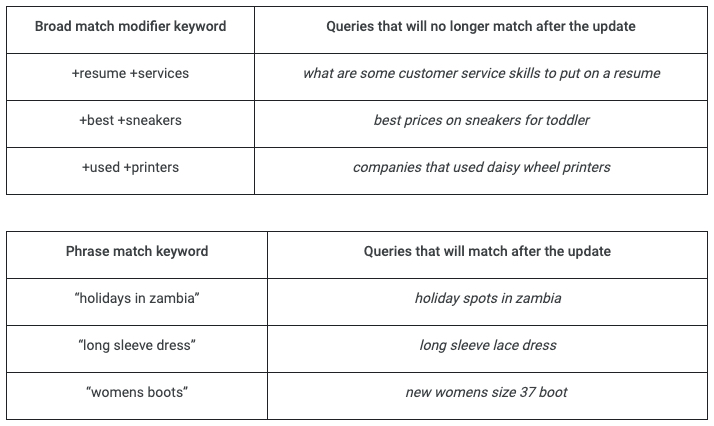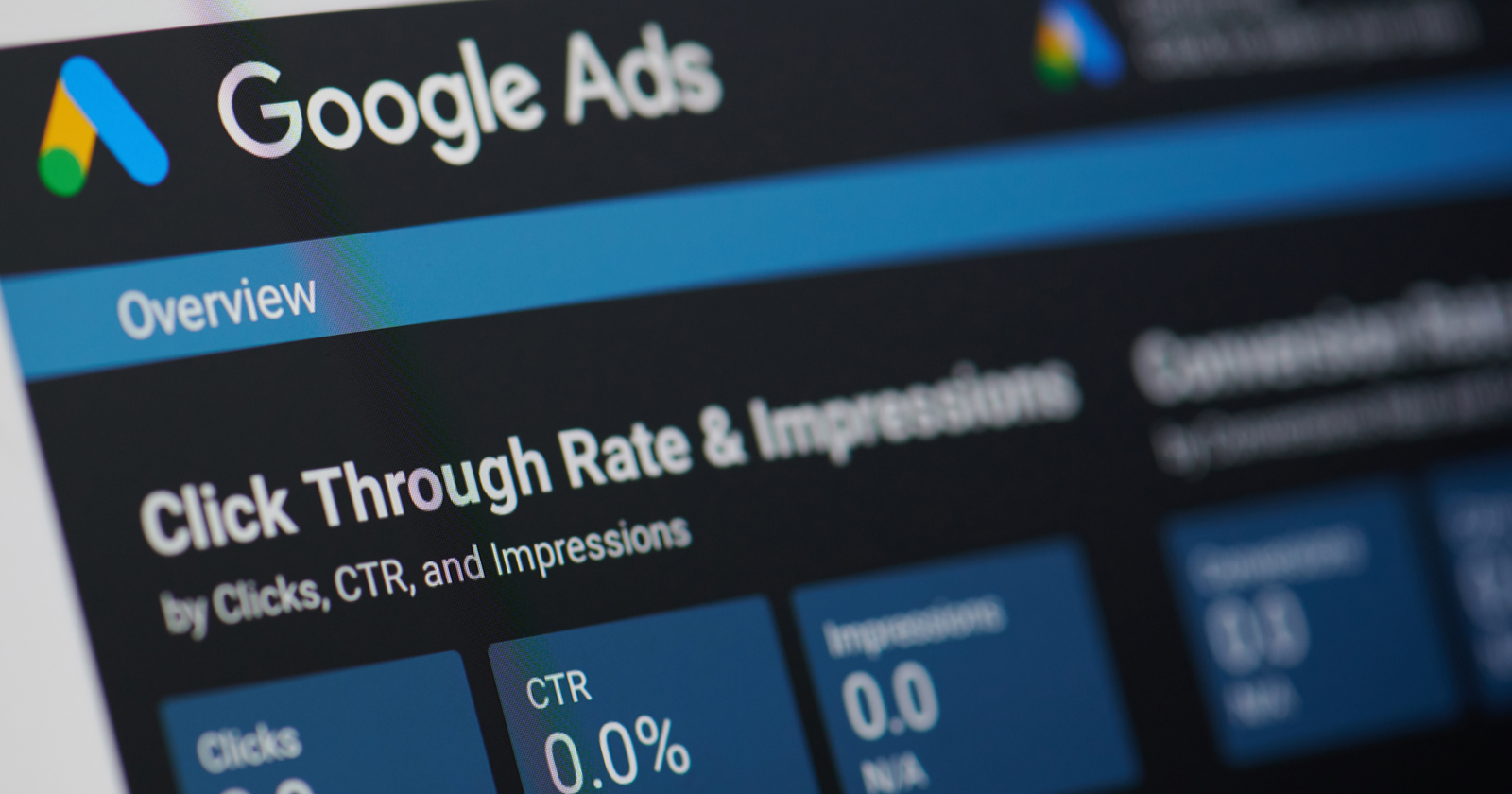Google announced today what is potentially a large change for certain paid search managers: the broad match modified version of keywords will be going away.
This change will start rolling out in two weeks.
What’s Happening to Broad Match Modified?
Phrase match will now expand to cover broad match modified instances. Google notes it will “continue to respect word order when it’s important to meaning.”
Advertisers will not have to take any specific action. Performance data will stay where it is, but the new matching behavior will start to take place.
Broad match modified keywords can continue to be added until July. At that point, it’s anticipated the full roll-out will be completed and no new ones will be added. Existing broad match modified keywords will continue to serve, but will be matched based on this update.
This is much like the transition from text ads to expanded text ads, where they could continue to serve, but advertiser ceased being able to create new ones.
Google notes this streamlining helps save account management time so brands are spending less time managing specific keywords.
How Does this New Matching Mechanism Work?
Currently, broad match modifier tells Google “these terms must all be present in the search query.” It’s expressed by putting a plus sign in front of the keywords required in the search.
Phrase match traditionally tells Google “the words must appear in this order.”
While Google isn’t specific, they note that Phrase Match will now cover both of these needs, while considering whether word order is important.
The example they use is if a moving company wants to help people move from New York to Boston, but NOT from Boston to New York.
Here’s how the keywords for “moving services nyc to Boston” (phrase match) or +moving +services +NYC +to +Boston (modified broad match) would be treated in this new era:

In other words, it can distinguish intent.
Additional examples of before and after include:

How Should Advertisers Prepare?
Predictably, Google is directing advertisers to monitor the Recommendations section of their account. The notices about duplicate keywords will likely light up with these changes, so choosing to pause versions can reduce the total number of keywords managed int he account.
This will likely also affect budges, especially for accounts that allocate budget by match types or divide match types by Campaign or Ad Group.
They also remind advertisers negative keywords and broad match with Smart Bidding can address issues with irrelevant searches or lack of reach.
What Does This Mean?
On the face of it, consolidation of platform complexity.
When taken in larger context, Google has been moving for years to get advertisers away from fixating on the keyword level of search. While it might seem counterintuitive given the history of search, persona-driven targeting and search themes are where Google wants advertisers to focus.
In the past, Google’s automation features were lacking. It was hard to justify taking your hands off those controls.
However, many advertisers have found things like Dynamic Search Ads and broad match coupled with Smart Bidding to perform light years ahead of where they used to.
Brands have wondered for years if Google will achieve a “no keyword needed” environment. While that is still up for debate, they are certainly trying to consolidate and streamline that part of their platform.
Google’s announcement can be read here.


